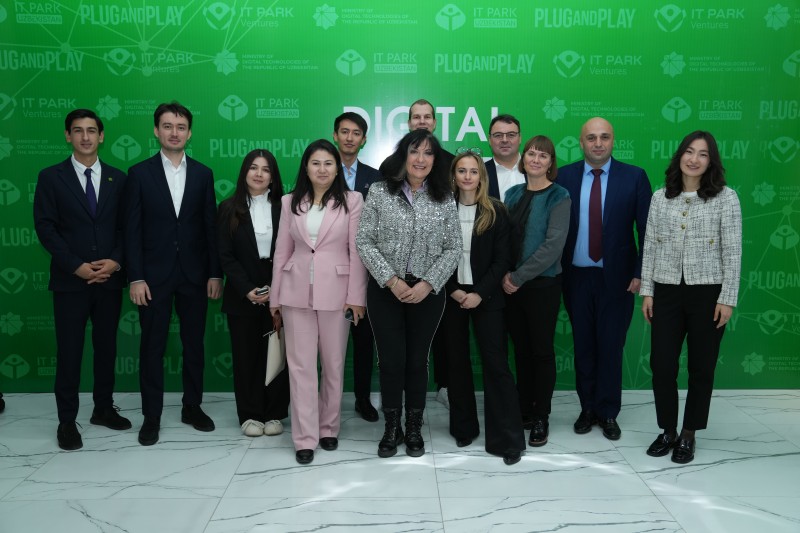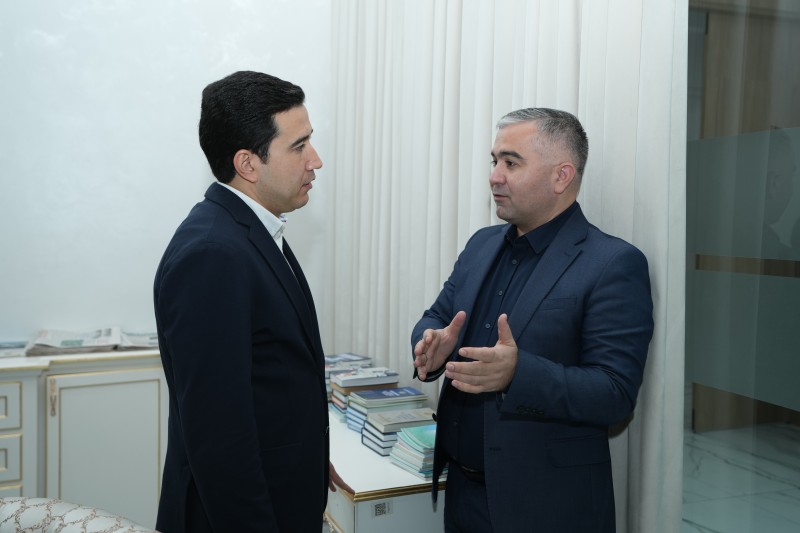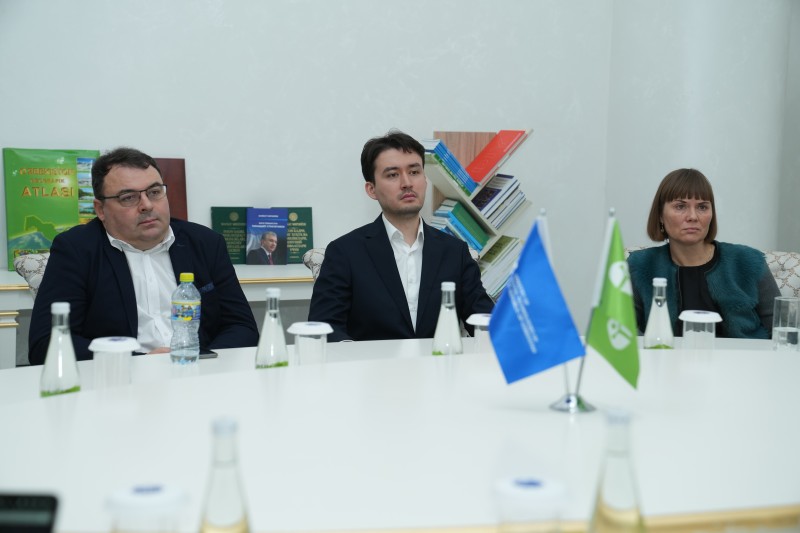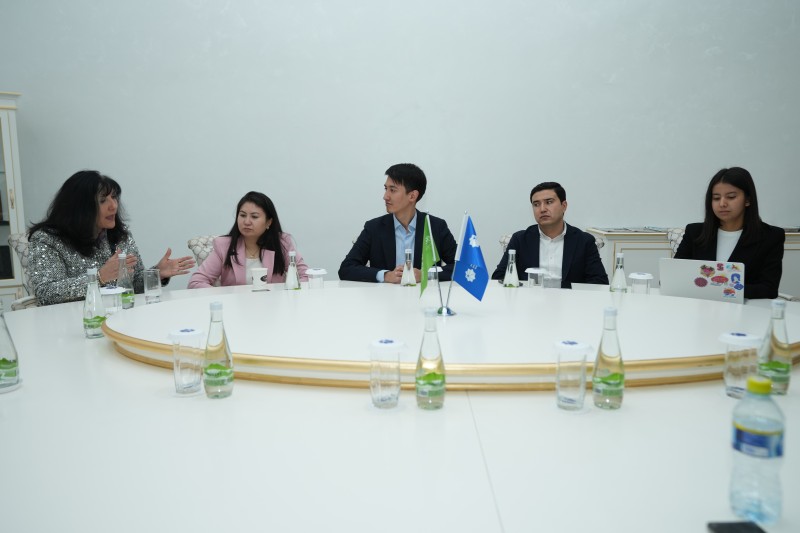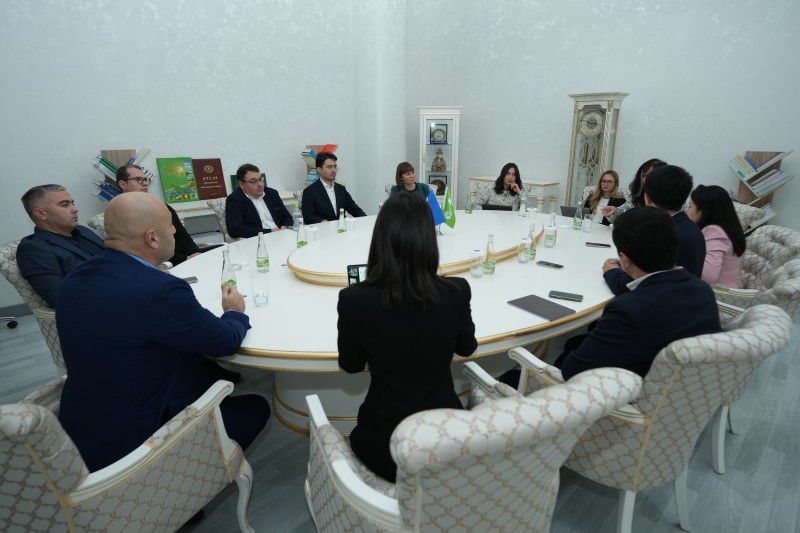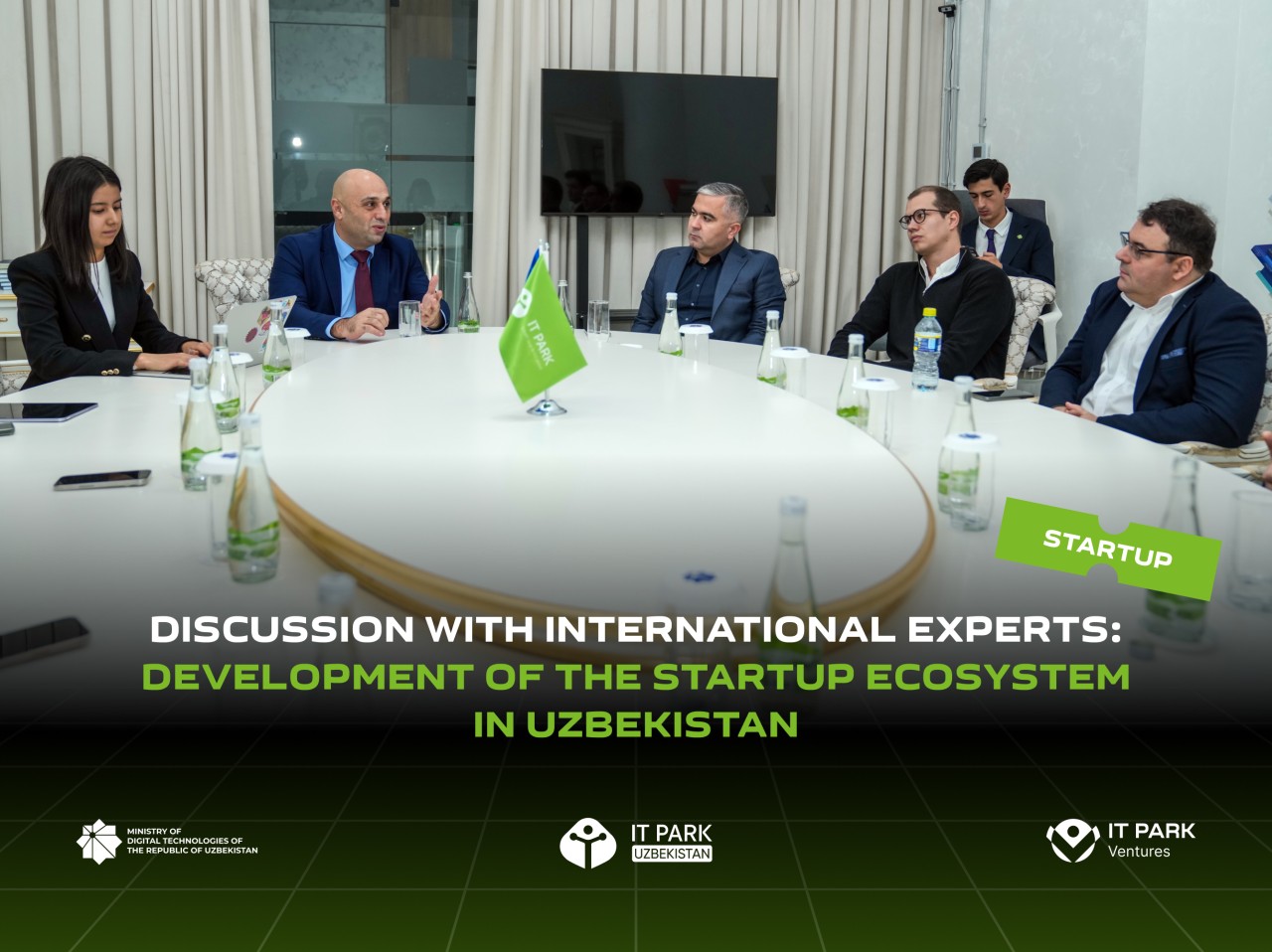
IT Park Discusses the Development of Uzbekistan’s Startup Ecosystem with International Experts
As part of the Digital Startups Week initiative, IT Park Uzbekistan hosted a discussion on the mechanisms of the "Digital Startups" program, aimed at fostering Uzbekistan's innovative ecosystem.
The meeting was attended by representatives from the Ministry of Digital Technologies, IT Park, and IT Park Ventures, alongside esteemed international experts, including Victoria Hernandez, Meri Helleranta, Piotr Serwin, Yeskendir Amirkhan, Christopher Polligkeit, Ravshan Kurbanov (Founder of a venture fund in Tajikistan), Salar Imamaliev (Advisor to the Chairman of the Agency for Innovations and Digital Development of Azerbaijan), and Yerke Assemova (Director for Consulting, Strategy, and Operations at KPMG).
The agenda centered on critical provisions related to:
- The allocation of investment funds for startup projects attracting financing from international venture capital funds;
- Mechanisms for reimbursing expenses incurred in the patenting and registration of intellectual property and trademarks of startup projects;
- Mechanisms for reimbursing costs linked to participation in premier international acceleration programs and training courses on entrepreneurship, business management, and corporate governance;
- The organization of public consultations and expert negotiations on mechanisms to reimburse costs for engaging mentors and trainers for entrepreneurial entities running incubation and acceleration programs.
International experts also reviewed the provisions of Presidential Resolution No. PR-357, issued on October 14, 2024, “On Measures for the Further Development of Startup Projects and the Venture Financing Ecosystem”, as part of the Digital Startups program aimed at comprehensive support for startup projects. Projects presented during the discussion were examined by the public and a group of experts, resulting in the collection of proposals and objections regarding the projects.
During the discussions, a working group comprising both domestic and international experts was introduced, whose opinions and recommendations were taken into account. Participants emphasized the importance of such negotiations for establishing transparent and well-defined rules for startups.
Best practices in venture capital and the experiences of various countries in attracting investments and supporting startups were discussed in detail. It was noted that startups require further simplification of processes for securing funding from investors in various forms, digitalizing the investment acceptance procedures, and streamlining the system.
Representatives of the expert group recommended:
- Making the mechanism for distributing investment funds clear and transparent. This will increase investor trust and attract more foreign investments.
- Simplifying the procedure for cost compensation and developing criteria on which it will be based. Priority should be given to startups focused on advanced technologies or having access to the global market.
- Creating additional incentives to attract international experts and compensating costs related to engaging mentors and trainers. This will significantly contribute to the development of the local startup ecosystem.
- Establishing a unified electronic platform to accelerate the process of reimbursing costs for patenting and intellectual property registration.
- Expanding the coverage of financial assistance used in incubation and acceleration programs. Specifically, for startups in the early stages of the incubation process, assistance in the form of grants rather than loans is desirable.
- Increasing subsidies to reimburse patenting costs for small startups, as these expenses are significant for them.
- Providing startups with opportunities to undergo training in technology commercialization.
- Examining Kazakhstan’s experience in compensating mentorship costs and creating opportunities for interaction between local and international experts.
- Creating separate support programs for regional startups, considering the specifics of each region.
- Attracting international partners to enhance the effectiveness of incubation and acceleration programs.
- Expanding opportunities for mutual knowledge exchange with leading countries in the IT field through mentorship programs.
- Providing a mechanism for state support for startups in case of litigation and disputes during patenting.
- Studying the possibility of creating a global ecosystem by attracting foreign startups into cost compensation programs.
- Offering startups recommendations for international markets in patenting processes.
- Introducing an audit system for the distribution of investment funds in line with international standards.
- Compensating startup costs based on the performance indicators of these startups.
- Implementing elements of support for venture funds by opening up opportunities for them to invest in foreign startups.
Following the meeting, it was decided to incorporate the recommendations into the drafts of four provisions submitted for discussion and present them for approval to the Coordinating Council in January 2025. Afterward, the “Digital Startups” program will be ready for the practical implementation stage, which will be an important step toward achieving its objectives and strengthening Uzbekistan’s startup ecosystem.
2024-12-12
